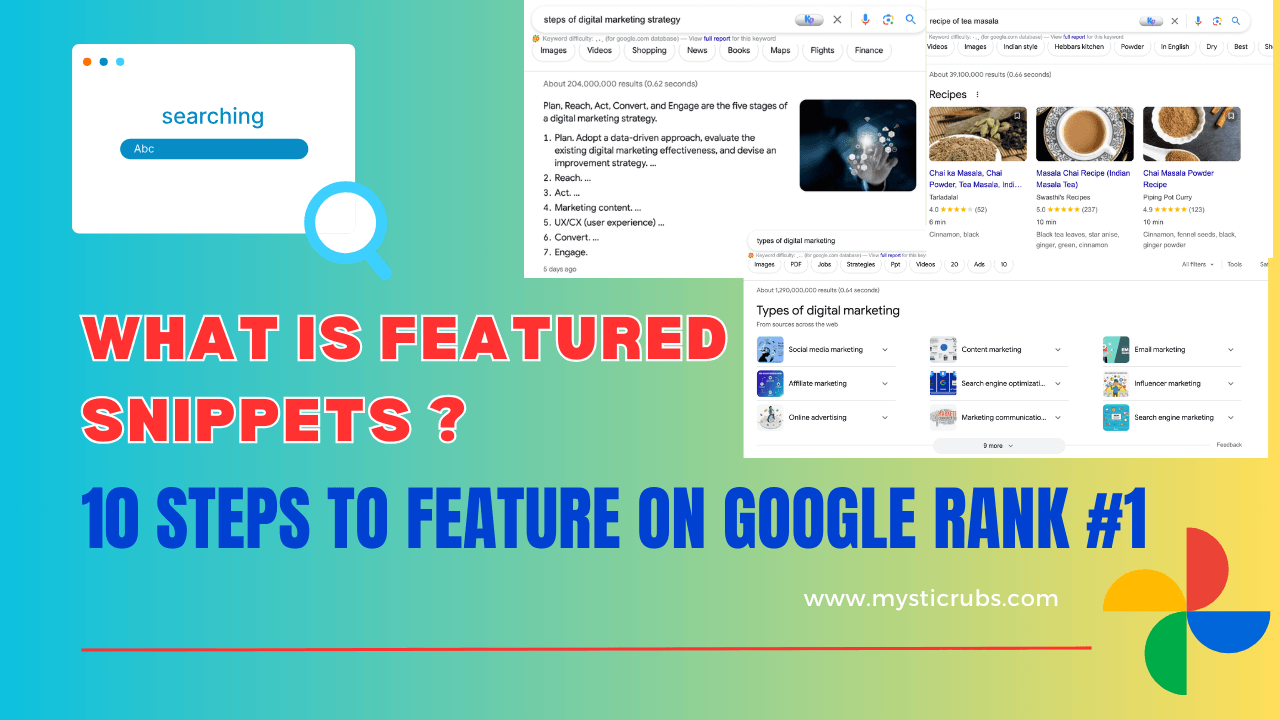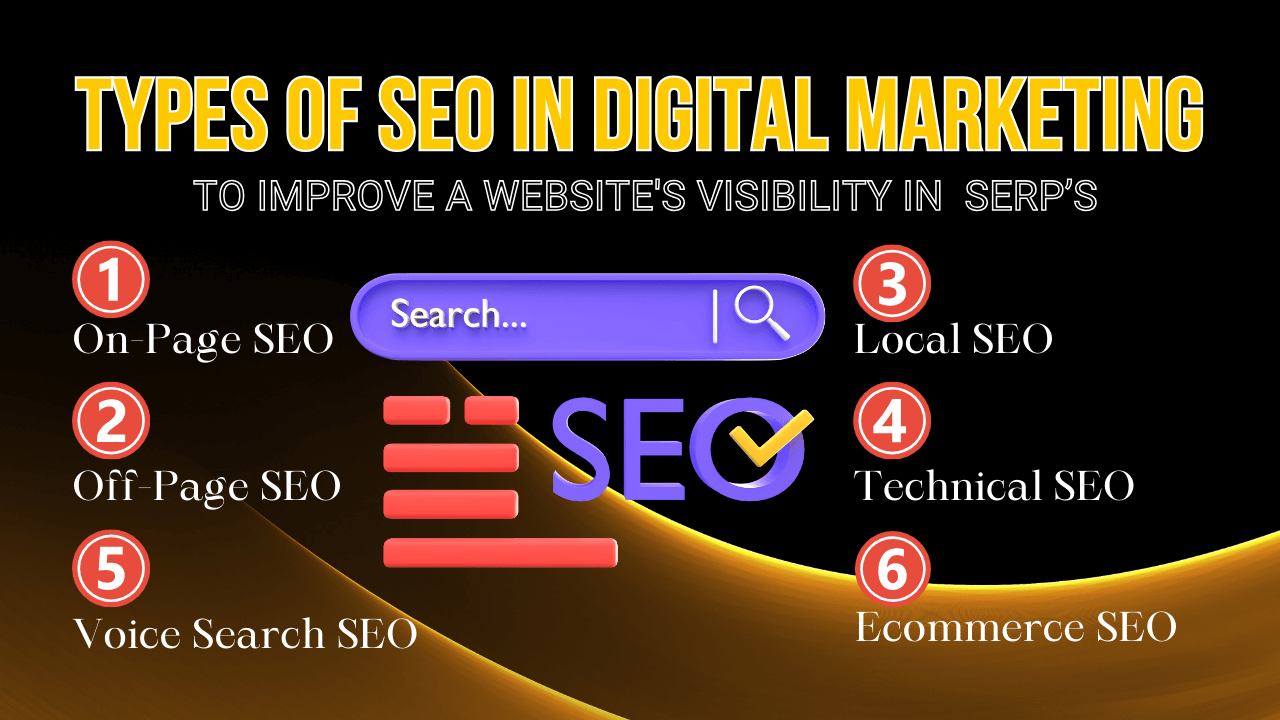Conquer Every Corner with 360 Digital Marketing Services
1 month agoTechnical SEO vs Local SEO: Which Strategy Will Boost Your Website?
1 year ago -
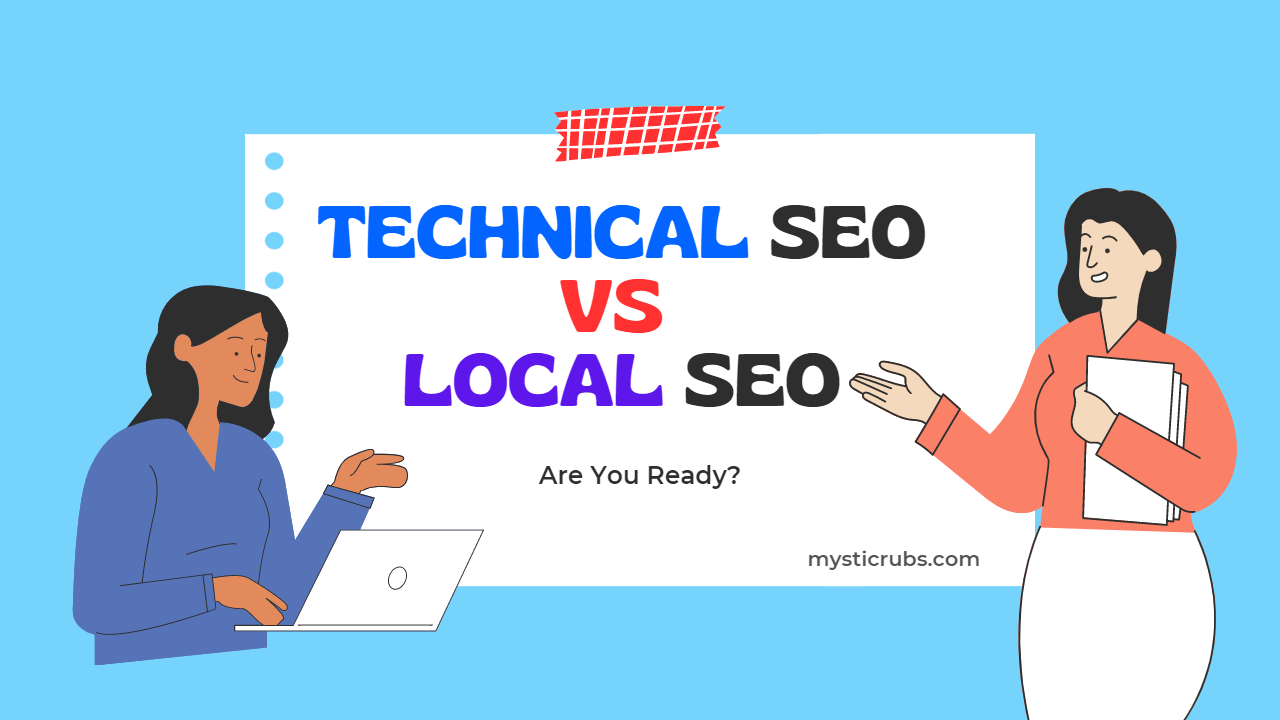
Which Strategy Will Boost Your Website’s Success in technical SEO vs local SEO? Before differentiating both SEO, first, let us find out what is SEO. SEO stands for Search Engine Optimization. It is the practice of optimizing websites and content to improve their visibility and ranking on search engine results pages (SERPs). This is achieved through various techniques such as keyword research, content creation, link building, and technical optimization.
By improving a website’s SEO, it becomes more likely to appear higher on SERPs, driving more organic traffic to the site. Search engines use complex algorithms to determine which websites should rank highest for a given search query, and SEO helps ensure that a website meets the criteria for ranking well.
The goal of SEO is to make sure that potential clients, customers, or consumers can discover a target website when they conduct relevant searches. Specifically, this means ensuring that the website shows up on Page #1 and in the Top 10 findings of the search engine results page (SERP). According to the research, 90% of searchers never reach the #1 SERP.
Both types of SEO are important for improving search engine visibility and driving traffic to a website. While Technical SEO is important for all websites, Local SEO is particularly important for businesses with a physical location or those that serve a specific geographic region.
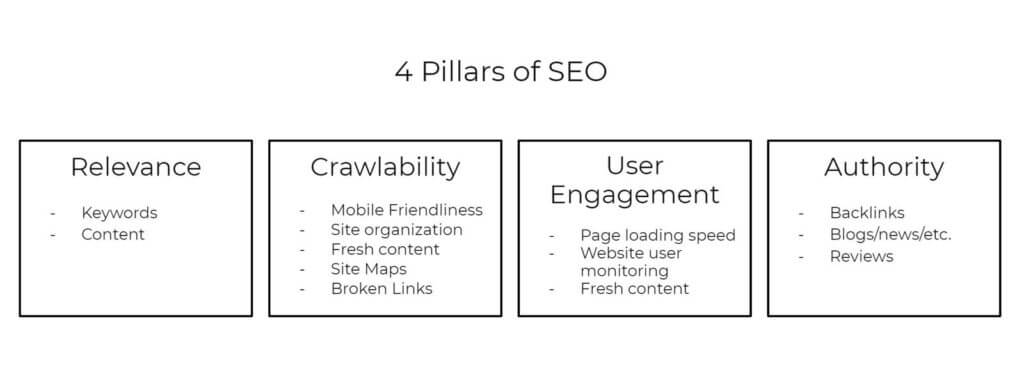
What is Technical SEO?
Technical SEO focuses on optimizing the technical aspects of a website to improve its search engine visibility and ranking. This includes factors like website speed, mobile-friendliness, site architecture, and structured data.
The goal of technical SEO is to raise a website’s technical standing so that search engines will place its pages higher. The three pillars of technical optimization are making a website faster, easier to crawl, and more understandable for search engines.
Technical SEO is a part of On-page SEO, which focuses on enhancing elements of your website to improve page rank. It is the opposite of off-page SEO, which focuses on increasing a website’s exposure through other channels.
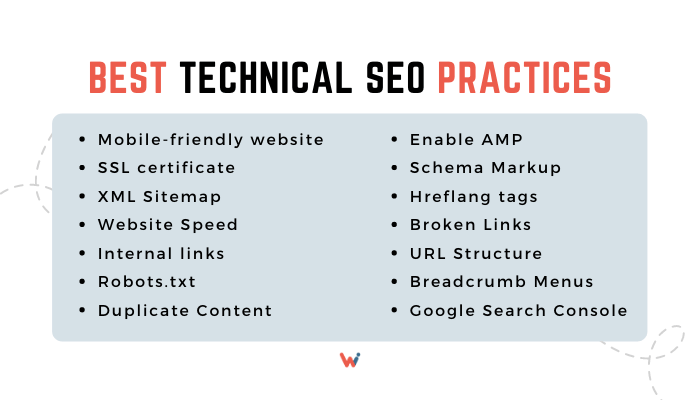
Technical SEO Elements
Technical SEO elements refer to the factors that affect the visibility and ranking of a website in search engine results pages. These elements include website speed, mobile-friendliness, crawlability, site architecture, URL structure, schema markup, and more.
Optimizing these elements can improve a website’s search engine performance and user experience.
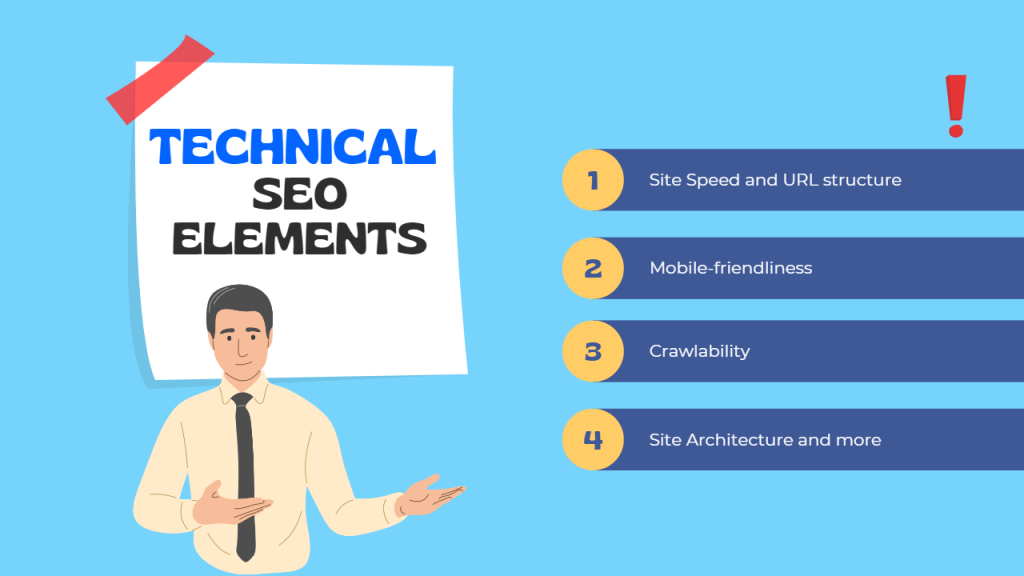
Submitting an XML sitemap to Google helps facilitate indexing your entire site properly.
Website Speed
Website speed is an important factor in technical SEO as it affects user experience and search engine rankings. To improve website speed, consider optimizing images, minifying code, reducing server response time, leveraging browser caching, and using a content delivery network (CDN).
Regularly monitoring and analyzing website speed is also crucial for maintaining optimal performance.
Mobile-friendliness
Mobile-friendliness is a crucial technical SEO element that refers to how well a website performs on mobile devices. A mobile-friendly website is designed to provide a seamless user experience and typically has a responsive design that adapts to different screen sizes.
Google considers mobile-friendliness as a ranking factor, so it’s important to optimize your website for mobile users to improve your SEO performance.
Crawlability
Crawlability refers to a website’s ability to be crawled and indexed by search engine bots. To improve crawlability, ensure that your website has a clean and organized structure, use descriptive URLs, avoid duplicate content, and include a sitemap.
Additionally, use tools like Google Search Console to identify and fix any crawl errors.
Site Architecture
Technical SEO elements related to site architecture include ensuring a clear and organized site structure, using descriptive and concise URLs, optimizing page load speed, implementing a mobile-friendly design, and utilizing schema markup to enhance search engines’ understanding of website content.
It’s important to prioritize user experience and ensure that the website is easily navigable to both users and search engine bots.
URL Structure
URL structure is an important technical SEO element that impacts website visibility and user experience. Your URLs should be descriptive, concise, and easy to remember. Including relevant keywords in your URLs can also improve their SEO value.
It’s important to use hyphens to separate words in your URLs instead of underscores, as hyphens are more easily read by search engines. Additionally, avoid using dynamic parameters in your URLs and instead use static URLs to make them more user and SEO-friendly.
Schema Markup
Schema markup is a type of structured data that helps search engines better understand the content on a website. It allows webmasters to provide additional information about their pages, such as the type of content, author, ratings, and more.
Implementing schema markup can improve their visibility in search results and attract more targeted traffic to their website. Some common types of schema markup include organization schema, product schema, and review schema.
Meta robots tag
The meta robots tag is a technical SEO element used to control search engine crawlers’ behavior on a webpage. It instructs crawlers whether to index or follow links on a page. The tag can have four values: “index, follow,” “noindex, follow,” “index, nofollow,” or “noindex, nofollow.” Proper use of the meta robots tag can help search engines properly index and understand your website’s content. With the plugin Yoast SEO it’s easy to noindex or nofollow a post or page.
Link building is regarded by some as falling under technical SEO. It’s accurate that links pointing at your website play a significant role in overall SEO. There are many significant factors, including the quality, originating domains, destination, frequency, and relevance of links. SEO includes techniques like outreach and other ways to build links. But a lot of contemporary link building is content marketing, so I don’t particularly think of it as technical SEO.
What is Local SEO?
Local SEO, on the other hand, is focused on optimizing a website for local search results. The method of improving a website’s rank in search engine results pages for searches that are relevant to a specific location is known as local SEO. Because it enables them to locate clients who are searching for their goods or services in a specific location, local SEO is particularly crucial for companies or businesses that cater to local markets or have physical locations.
This includes factors like local keyword targeting, Google My Business optimization, and building local citations and Backlinks From Local Sites.
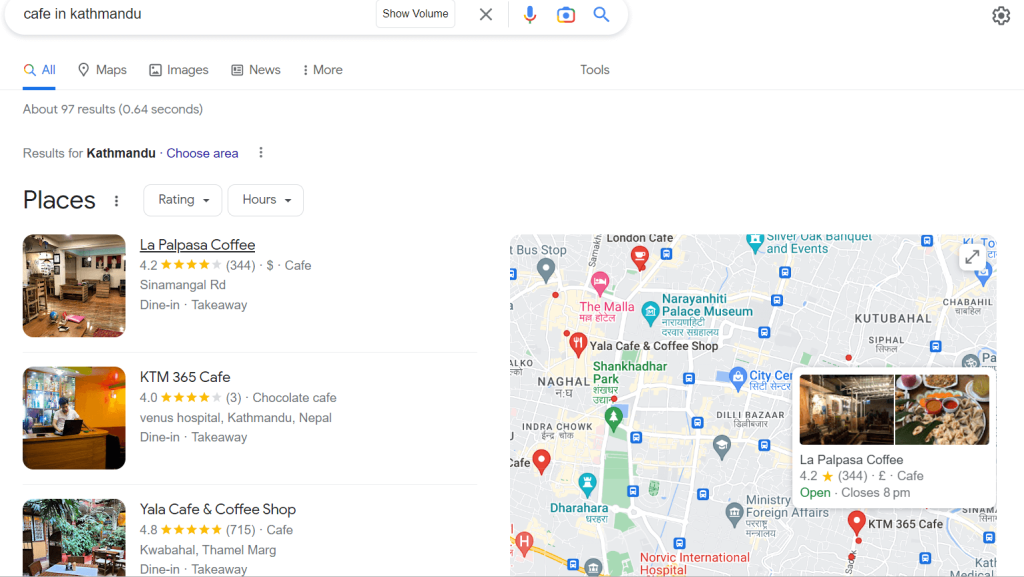
For instance, when you look for “food delivery” while at work, a list of restaurants near to your office is displayed in the local SERPS (search engine result pages).
But if you conduct the same searches at home, the outcomes will be completely different. Given that you require a food delivery from nearby location, which makes sense.
Local search has been around for years, but it was limited due to people only using their desktop computers. With the recent growth in mobile internet access, however, mobile search has exploded, 78% of people who search for something nearby on their phones visit the business within a day. So, local SEO has become hugely important for the success of any business offering local products or services and local marketers.
Local SEO Ranking Factors
Google Business Profile (Google My Business)
Google Business Profile is a vital local SEO ranking factor that helps businesses to be more visible to their potential customers. It provides an easy way for businesses to create and manage their online presence, including their location, hours of operation, contact information, customer reviews, and more. By optimizing their Google Business Profile, businesses can improve their chances of ranking higher in the local search results and attracting more customers.
Some key factors to consider when optimizing your Google Business Profile include providing accurate and detailed information, regularly updating your profile, encouraging customer reviews, and including relevant keywords in your profile description.
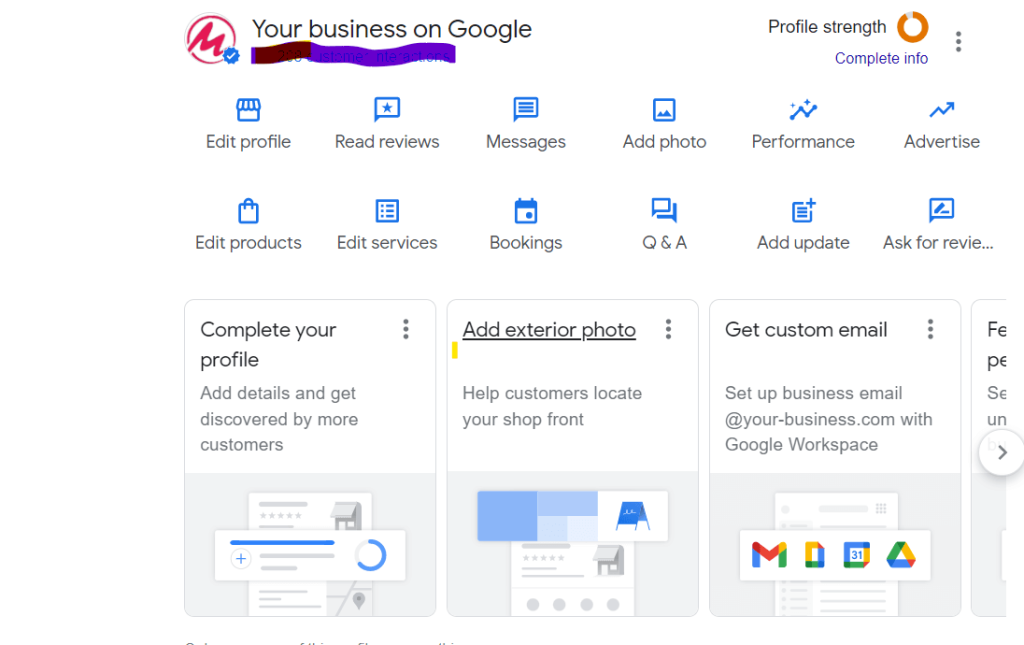
NAP Citations
NAP Citations are a relevant factor in Local SEO ranking. It stands for Name, Address, and Phone number. A consistent and accurate NAP across various online directories, listing websites, and social media platforms helps search engines verify the legitimacy and trustworthiness of a business. This, in turn, can improve the business’s local search engine ranking, making it easier for potential customers to find it online.
Here are a few NAP citation tips:
- Keep your citations everywhere 100% consistent (same name, address, phone number)
- Submit your information to popular directories in your local area and industry
- Submit to big players (like Apple Maps, Yelp, Bing Places, Facebook, etc.)
Online Reviews
Online reviews are an important local SEO ranking factor. Positive reviews can boost your business’s visibility in local search results and attract more customers. Encourage your satisfied customers to leave reviews on platforms like Google My Business, Yelp, and Facebook. Responding to reviews, both positive and negative, can also improve your local SEO ranking by showing search engines that you are engaged with your customers. Additionally, having a high overall rating and a large number of reviews can improve your chances of appearing in the “local pack” of top search results.
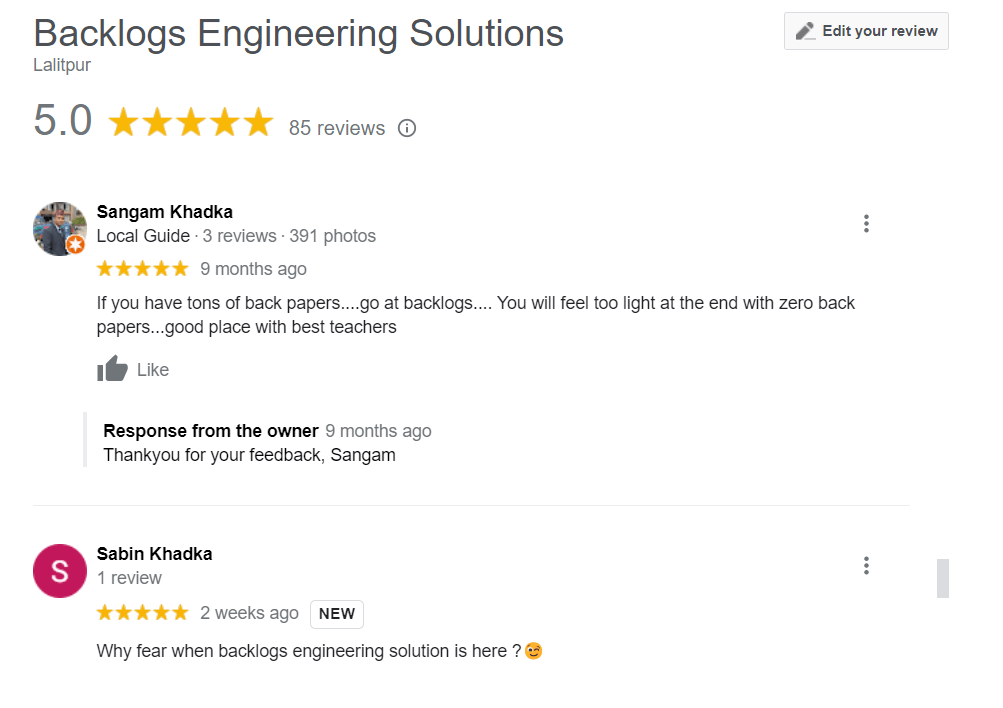
Technical SEO vs Local SEO
While Technical SEO is important for all websites, Local SEO is particularly important for businesses with a physical location. Competitively between technical SEO vs Local SEO, Local SEO is usually less competitive than technical SEO. This can make it easier for local businesses with a strong online presence and good reviews to rank high in search results.
Technical SEO
Focuses on optimizing the technical aspects of a website to improve its search engine visibility and ranking.
- The process of enabling search engines to easily scan and index websites without any issues is Technical SEO.
- Optimize these elements i.e., website speed, mobile-friendliness, crawlability, site architecture, URL structure, schema markup, and more.
- It is high competition in comparison to local SEO.
Local SEO
Focus on improving a website’s rank in search engine result pages for searches that are relevant to a specific location
- The process of promoting your website products and services in local area searches is Local SEO.
- Local keyword targeting, Google My Business optimization, and building local NAP citations.
- It is usually less competitive than technical SEO. This can make it easier for local businesses with a strong online presence and good reviews to rank high in search results.
Local SEO is its own algorithm, but it’s helped along with good overall SEO. Technical SEO and local SEO actually work hand-in-hand. When it comes to choosing technical SEO vs local SEO, the correct answer is “all of the above.”
- AI is Product or Feature ? Comparison of AI as Product vs Feature
- Conquer Every Corner with 360 Digital Marketing Services
- Social Media Marketing Strategy for Small Business Success
- Top 12 AI Tools for Video Creation You Won’t Regret !





